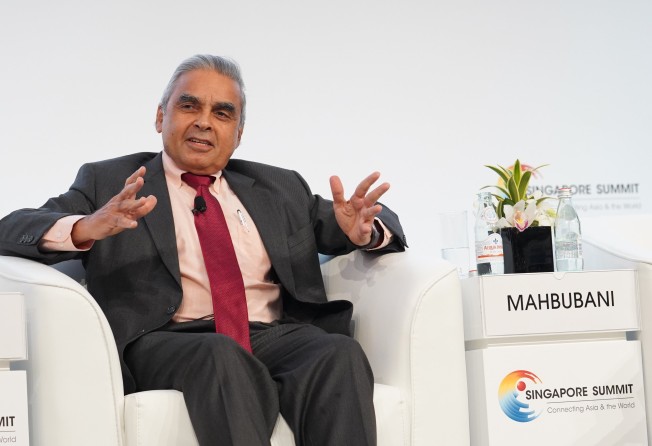Where is Hong Kong’s Kishore Mahbubani?
- Readers discuss the need for Hong Kong to nurture people capable of telling its story well, the importance of training youngsters for careers in finance, and the number of visits prisoners are allowed

Feel strongly about these letters, or any other aspects of the news? Share your views by emailing us your Letter to the Editor at [email protected] or filling in this Google form. Submissions should not exceed 400 words, and must include your full name and address, plus a phone number for verification.
Recently, a video of Singaporean scholar Kishore Mahbubani answering a question about China made the rounds on Chinese social media. Mahbubani’s response, factual and logical, is an impressive, convincing rebuttal of the Anglo-Saxon media’s distorted perspective on the reality of China, and of American hypocrisy.
This is an incredible example of telling China’s story well, which President Xi Jinping has called for. It also raises the question: where is Hong Kong’s Kishore Mahbubani?
Mahbubani was a diplomat who served as Singapore’s permanent representative to the United Nations and as president of the UN Security Council, before going on to a career in academia.
His response on China in the video was enlightening because he cited real examples, not only from his research but also from his professional experience.
Hong Kong has plenty of scholars but the system does not afford them opportunities to gain diplomatic experience, like Mahbubani, to tell China’s story well.
In international relations, there are no permanent friends or enemies, only permanent interests. The Anglo-Saxon media perspective is an extension of other countries’ foreign policy. During World War II, the Anglo-Saxon media reported on China positively because those countries were fighting with China against Japan. Today, China is challenging the US’ superpower status.
The dominance of English as an international language boosts the reach of the Anglo-Saxon media. When it is beneficial to them, they advocate free trade or free speech. When it is not, they are in favour of sanctioning Huawei or extraditing WikiLeaks founder Julian Assange and whistle-blower Edward Snowden regardless of freedom of trade or of speech.
If Hongkongers are to rebut the Anglo-Saxon media perspective on China, letting Hong Kong scholars gain diplomatic experience is an essential step.
Stephen Fong Huichung, director, research centre, City Think Tank
Hong Kong must nurture young financial sector talent
I am writing in response to the op-ed, “How Hong Kong’s reboot as a global financial centre can improve lives in the city” (November 15).
I agree with the writer’s view that finance can “be unleashed as a force for good, such that it can deliver social impact and bring economic windfalls for ordinary citizens”. The financial services sector is a major employer in Hong Kong and provides opportunities for upward social mobility in our city, which is plagued by wealth inequality.
Hong Kong should not only welcome talent from around the globe but also launch programmes to increase the competitiveness of the city’s youth. Youngsters in Hong Kong need insights not only into China but also into overseas markets.
Hugo Cheng, Tseung Kwan O
Fewer visits to parents in prison is tough on children
As we lift pandemic curbs, one restriction which continues to be in place that has taken a huge toll on the families of the more than 7,000 inmates and people remanded in prisons across Hong Kong is the limitation on visits to their incarcerated loved ones.
At the moment, only two visits of 30 minutes per month are allowed as opposed to four (two additional visits upon request) in ordinary times. While two visits fewer may not seem like that big of a deal, for families with younger children, this can often mean drawing a name from a hat as to who gets to see their mum or dad this month.
While one could understand the need for restrictions at the peak of the pandemic, the fact that visits are now allowed means that prisons are confident that they can handle visits safely, bearing in mind a “visit” in this context means talking on the intercom telephone while separated by a big screen, wearing masks and being subject to vaccine requirements.
Let’s not forget why we allow visits in the first place – to minimise the impact on the families of the incarcerated. Children being deprived of access to their parents is a major determinant of future criminality and they should not have to pay a price for what they did not do.
W. Chan, Tseung Kwan O